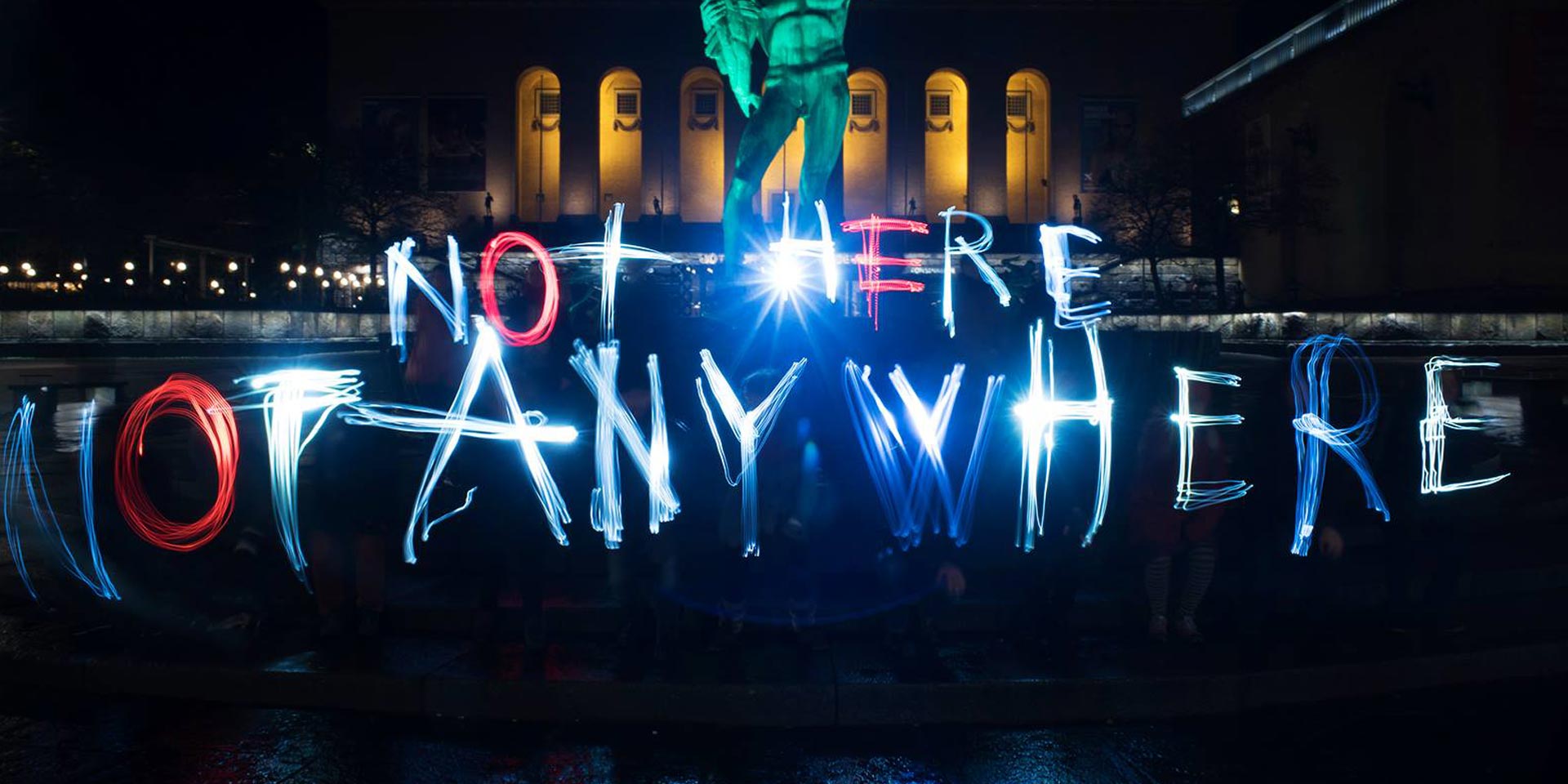
WHO WE ARE
what we do
The Gastivists are a small team of motivated people, active in a variety of climate and oppression-related struggles in several different countries.
We aim to support grassroots groups who fight new gas infrastructure, facilitate the flow of information between NGOs and local groups, create connections between different groups around the world, and help build a movement that will stop gas and bring about an energy transition.
While opposition to gas infrastructure is our starting point, the struggles we are involved in intersect with issues like militarisation, land rights, geopolitical conflicts and energy democracy. These intersecting struggles inform our work and our goals.
We recognise that climate change is wrapped up in the neocolonial capitalist system and all the other oppressions that system causes – such as racism, misogyny, homophobia, xenophobia and speciesism. We use gas as a lens to fight against many other injustices which are perpetuated by the fossil fuel industry. Our call for climate justice is also a call for justice for all oppressed groups.
We focus on grassroots activism because of the potential it has to really create new spaces, dialogues and ways of working which challenge that system.
how we work
As a collective, we aim to organise in the most horizontal and consensus-based way possible. We try to be aware of roles and power dynamics, and to adapt them towards ways that feel comfortable and sustainable for all members.
We have a deep wish for this collective to integrate into our work the values of intersectional feminism, true anti-racism, anti-colonialism and inclusivity for all genders, ages, religions and backgrounds. We know this is a big ask, and that we will probably fail at times and have to try again. Your feedback on how we do so is welcome, and your support is needed.
By working on the EastMed pipeline, we have felt a need to write our position on Palestine – Israel, which sets the frame of how we work in the region. You can read our position on Palestine – Israel and our reflection on what can we do in the climate justice movement after 7th Oct 2023.
where do we get money from
The Gastivists are funded by private foundations, individual donors and corporations with an ethical core business. We don’t accept money from
- Corporations with destructive activities as core business (fossil fuel companies, industrial food companies, non-ethical banks)
- Organizations or foundations that receive money that can directly be linked to destructive activities
- Organizations, foundations or companies that are vocal on being pro-nuclear
- Organizations, foundations or companies that are on the Boycott Divestment and Sanctions list or in any other way can be linked to the Isreali apartheid regime.
Our current funders are:
- The European Climate Foundation
- The Energy Transition Fund
- Keep It In The Ground Foundation
In the past we were funded by:
OUR ORGANISING STRUCTURE
Everyone who is fighting gas is free to use the name Gastivist.
The Gastivists “brand” exists so that people can find us when they need us, and for others to use in their activism if they wish.
We have a core team of about 4 people who work regularly on organising, giving strategic direction, fundraising and working on the cohesion of the collective. They are joined by people who work on specific Gastivists projects for a defined period of time. These include people who offer particular technical skills (graphic designers, animators), activists who join us for particular events (such as the UNFCCC conferences) and local organisers who fight against specific gas infrastructure projects.
Gastivists in Poland, Romania, Italy and Greece
Since June 2021, we have been excited to welcome Gastivists organisers in Poland, Romania, Italy and Greece. They are each trying to forward the fight against gas in their local context.
Find out more about their work : Greek resources, Polish resources & more to come!
